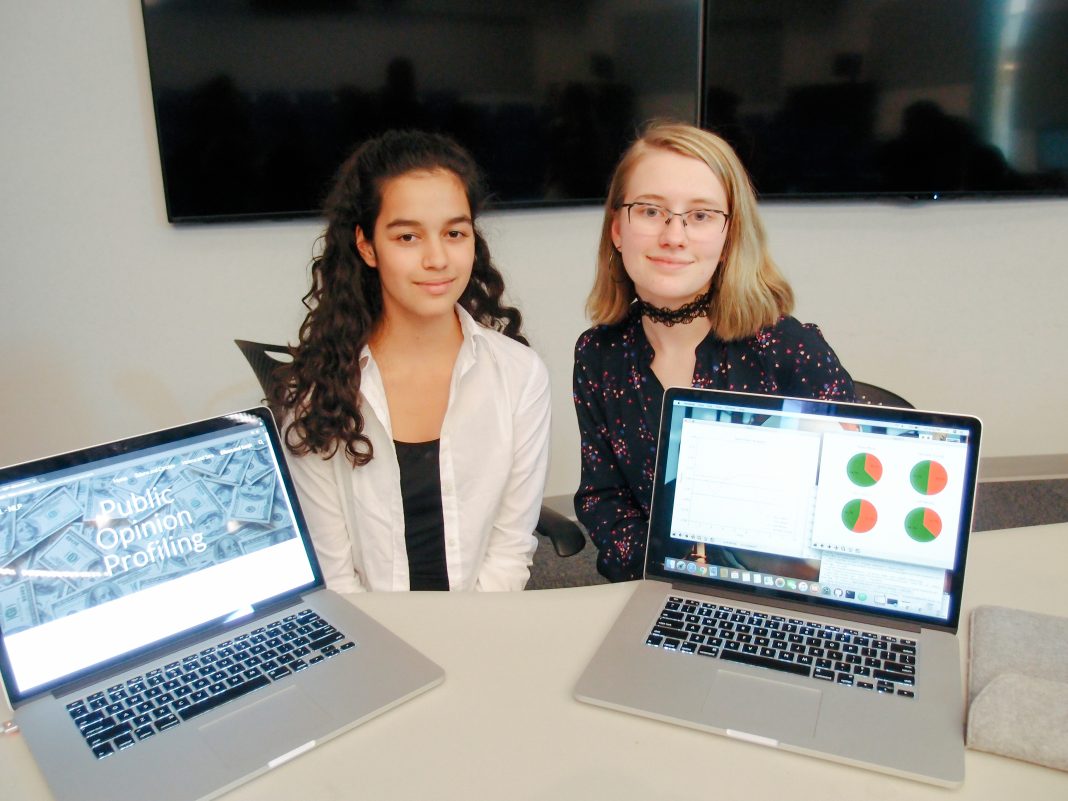By: Amal Javed Abdullah, Staff Writer
The SFU Faculty of Applied Sciences held Invent the Future, an Artificial Intelligence (AI) summer camp, to encourage girls to pursue science, technology, engineering, and mathematics (STEM) fields.
During the two weeks of the camp, 24 eleventh-grade girls from all over the Lower Mainland, Vancouver Island, and even two from as far as Toronto, gathered to learn about AI, experiment with STEM, and work with mentors to create their own AI projects.
In the first week, the girls learned about computer vision, natural language processing, and robotics. They also heard from a variety of speakers who gave talks on topics such as coding, innovation and pitching, and leadership in technology. In the second, they broke off into smaller groups, each taking on a topic and creating their own research projects in five days with the help of their mentors.
Sara Cadder and Eileen Wallgrove, two participants from Vancouver and Mill Bay respectively, worked on a research project about the public perception of billionaires and their correlation to altruism. They used online libraries to look into their chosen topic, then created visual graphics that change in real-time to reflect their findings.
Both Cadder and Wallgrove say that, though the program was close to home, they heard about it “on a fluke.”
Both say that it was not adequately advertised, and that they both heard it through word of mouth outside their schools. They posit that this may be because the program is still in its infancy, being the first year that it has been launched.
Wallgrove commented that “we have alumni now, so having people graduate gives the program credibility. [We can say] this is what we did, what we could do. . . so next year, more people will see value in it.”
Cadder viewed the variety of the activities and different range of topics as a strong point of the program. “The first week, we had educational lectures. We had a college advisor, [speakers from] Microsoft and Amazon… one person talked about finding your purpose as a woman, or a woman of colour in the technology field. There were a variety of things that were specifically tailored, especially to diversity and self-worth.”
Wallgrove added that the reason why this program was launched was because there is a need for representation in in the industry. “The general consensus is that people who are running it saw a need for it because the computer science and AI industry is basically all white men.
“There’s little diversity . . . there’s 15% women, and people of colour are less than 10%. It’s pretty bad because AI is going to dictate everything.
“Bias is not intentional, [it’s who you are] that gets put into the work. So we need diversity [in the industry] to show AI as a copy of ourselves.”




